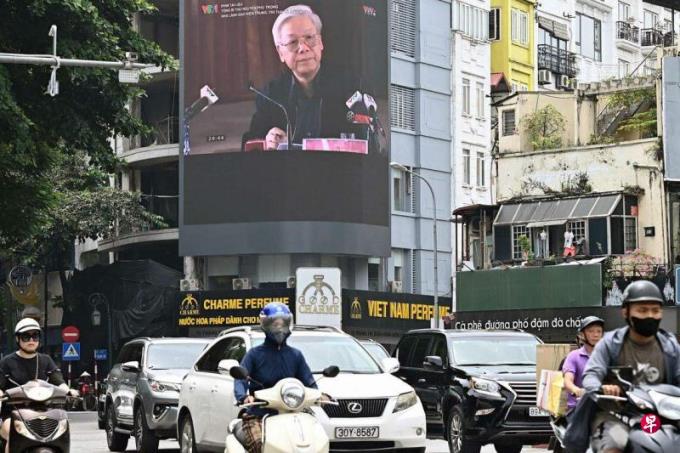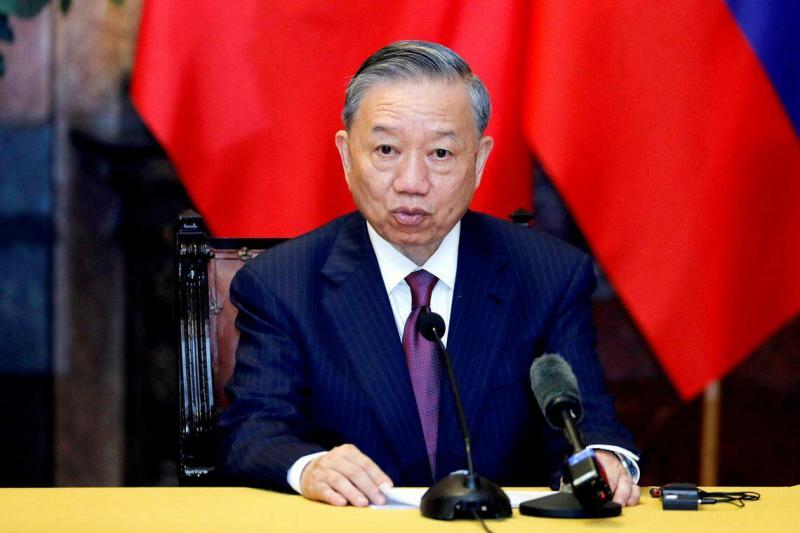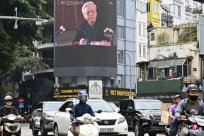
(Bloomberg, Hanoi) After the death of the Central General Secretary of the Communist Party of China, Ruan Fuzhong, Ruan Fuzhong, died, and the competition for the successor was even more fierce. Among them, the president of the country Su Lin became the most likely to win.
Ruan Fuzhong, who led Vietnam for 13 years, died on Friday (July 19) at the age of 80.Su Lin will be temporarily served as the general secretary, and until 2026, he will choose a successor in the 14th National Congress of the Communist Party of China.Analysts said he was one of the few people who were qualified to take over and were popular candidates.
Li Hongxie, a senior researcher at the Easov Isaf Issa East South Asian Research Institute in Singapore, said: "Su Lin is now a leader. Other factions may resist his rise, but considering his current status, it is unlikely that someone can be able to be able toStop him.
Su Lin's primary task is to promote economic development.The Vietnamese government is increasing public expenditure and attracting foreign investors. However, due to the "furnace" anti -corruption movement initiated by Ruan Fuzhong, the efficiency of bureaucratic decision -making is reduced. In the first half of this year, Vietnam's budget utilization rate was less than one -third ofLast year was still low.
Promoting anti -corruption but cautious reform methods
Before becoming the President of the State, Su Lin served as the eight years of Minister of Public Security and was the main executor of the anti -corruption movement. Bloomberg described him as Vietnam's "anti -corruption pioneer" in the report.However, Su Lin proposed this month that more cautious anti -corruption methods should be taken to prevent it from hindering economic growth.
Su Lin pointed out that the efforts of anti -corruption should not "misunderstand the innocent people", but to create a stable environment for the development of the country.Chen Tingtian, former dean of the Vietnam Institute of Economic Research, said: "An important thing that the government needs to solve is how to implement discipline punishment without harming the market and economy."
Despite the decline in government expenditure, the Vietnamese economy was still one of the fastest growing countries in Southeast Asia last quarter.Last year, Vietnam's direct investment surged by 32%, attracting funds of about 36.6 billion US dollars (about $ 49.2 billion).
Vanacapital, one of Vietnam's largest investment management company in Vietnam, said in a report: "We believe that economic policy will not change due to the change of leadership. These policies have been very consistent in the past two decades.Continue to promote growth and development in the next decades. "
Who will take over Ruan Fuzhong's question has been discussed for many years.Although this kind of political uncertainty has not caused those investors who have poured into Vietnam after the Sino -US trade war, this is still a risk.
However, during the two months after Su Lin's last time he took office, he had proved that he was a powerful practitioner of Vietnam's "bamboo diplomacy" policy.While deepening the Vietnam -US relations, Su Lin also welcomed Russian President Putin in June.No matter who finally appeared on Vietnam's highest power throne, it is expected that this diplomatic strategy will continue.
Su Lin occupies two of the highest positions in Vietnam's politics at this stage, which helped him consolidate power before the 14th National Congress of the Vietnam.Li Hongxie said: "He is likely to hold these two positions at the same time, until 2026, or until they can reach an agreement on the candidate of the new state chairman."




